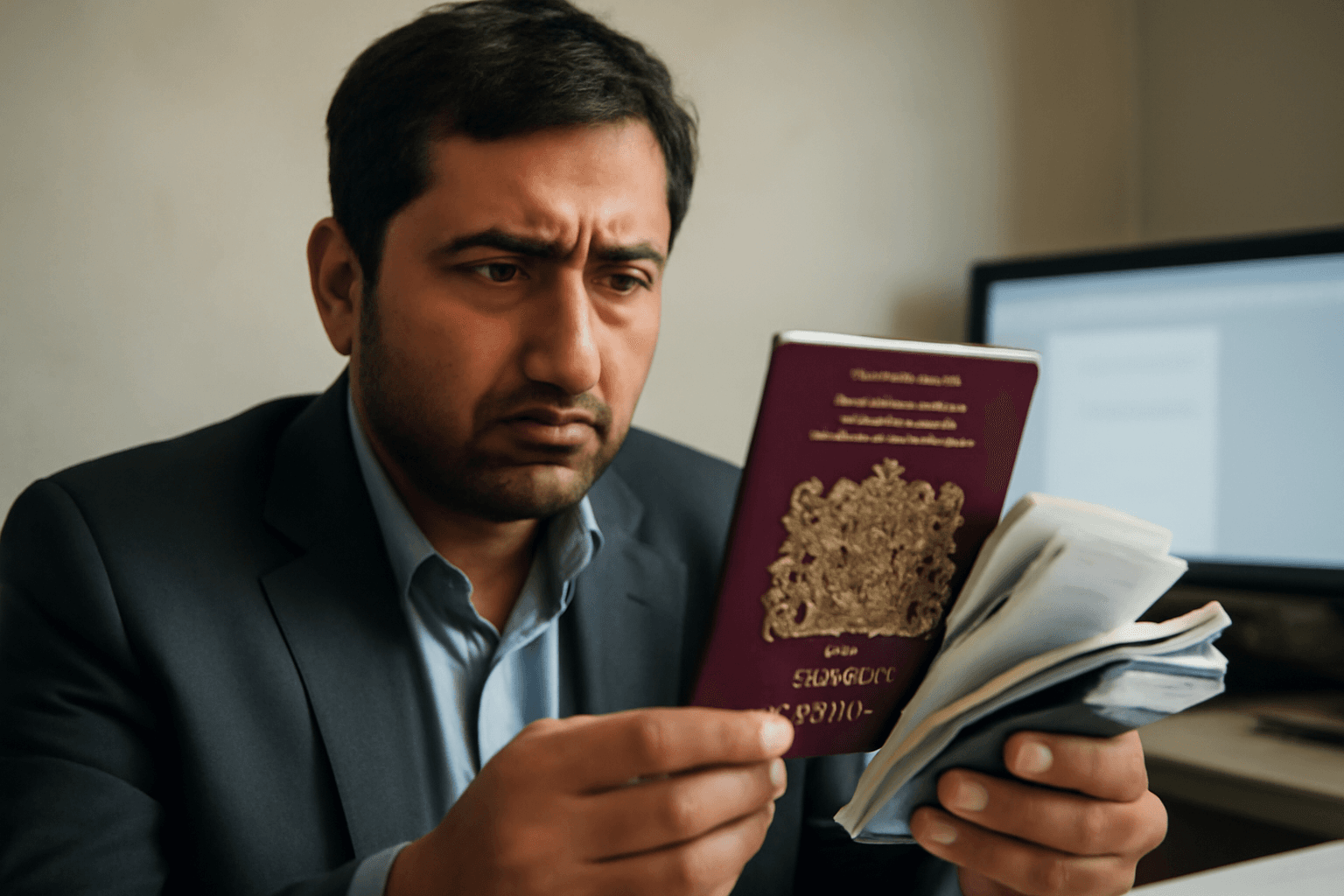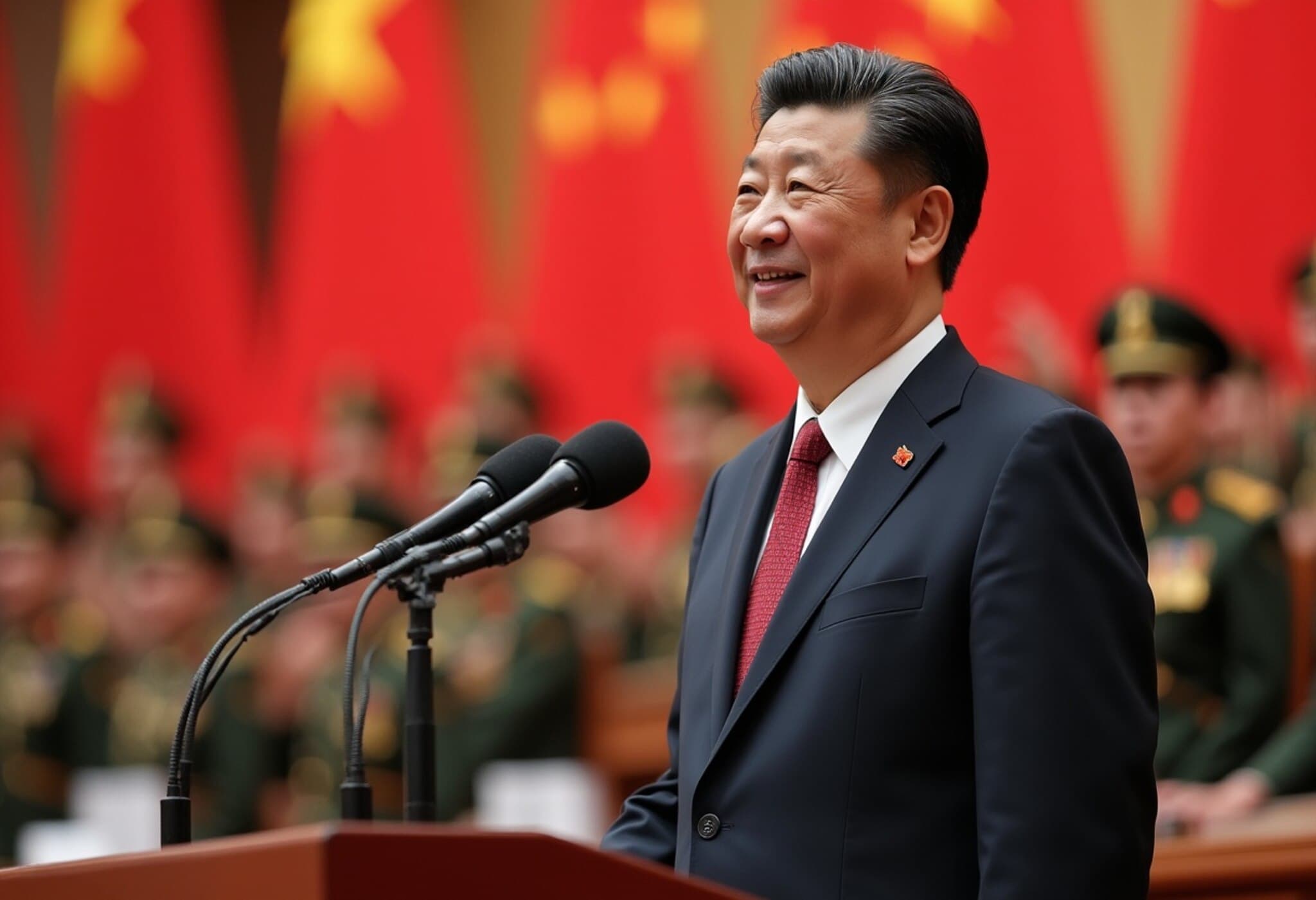Unveiling a £50,000 Visa Fraud Scheme Targeting UK Immigration
A recent investigation by The Telegraph has uncovered a troubling network run by Pakistani consultants exploiting vulnerabilities in the UK’s immigration system. One firm brazenly advertises a "98% success rate" for entry into Britain, reportedly selling fabricated visa documents — including counterfeit CVs, employment letters, and bank statements — for sums reaching £50,000.
The Mechanics of a Sophisticated Scam
Central to this operation is Mirpur Visa Consultant (MVC), led by Syed Kamran Haider in Pakistan-administered Kashmir. MVC markets itself openly online, leveraging loopholes in the UK asylum framework described by experts as “easy to manipulate.” Applicants are provided with meticulously forged paperwork to meet visa eligibility standards, despite glaring errors such as nonsensical employment letters from fictitious hospitals.
- Fake CVs and employment references: Tailored to satisfy UK immigration criteria.
- False bank statements: Manufactured to prove financial stability.
- High price point: Up to £50,000 for a comprehensive package.
Shockingly, some of these falsified applications have penetrated the UK Home Office’s scrutiny, facilitating work and student visa approvals that circumvent legal immigration protocols.
A System Struggling to Keep Pace
Harjap Bhangal, a UK-based immigration lawyer, describes the situation as symptomatic of a “broken system.” He warns that the Home Office remains oblivious to the scale and ingenuity of such frauds, allowing exploiters to "sell a dream" to those desperate to stay in the UK indefinitely.
"These consultants capitalize on people’s fears and hopes," Bhangal says. "It's not just deceit; it's a tailored business model preying on vulnerable populations seeking better lives abroad." He highlights how asylum claims filed before visa expiration grant legal work rights, a critical loophole fueling the scam's success.
Contextualizing the Surge in Pakistan-origin Asylum Seekers
Data supports the concerning trend: in the past year alone, Pakistan nationals lodged 10,542 asylum claims in Britain — an 80% increase from the previous year and the highest among all nationalities. Yet, this demographic rarely appears among those crossing via small boats into the UK, indicating a preference for legal-looking visa routes, albeit often forged.
This phenomenon raises pressing questions about immigration policy and enforcement effectiveness. Are current checks rigorous enough to detect well-coordinated fraud rings? Furthermore, how might this influx alter the social and economic landscape within immigrant communities and the wider UK society?
Policy Implications and the Road Ahead
The exposure of such elaborate forgery rings underscores an urgent need to reform immigration controls. Possible measures include:
- Enhanced Verification Protocols: Deploy advanced technology such as AI-driven document authentication to combat fakes.
- Cross-border Collaboration: Strengthen ties with Pakistani authorities and international partners to dismantle fraud networks at their source.
- Public Awareness Campaigns: Educate potential migrants about the legal risks and repercussions of engaging with fraudulent consultants.
- Policy Overhauls: Review asylum and visa policies to close exploitable legal gaps.
Such steps are vital if the UK is to restore integrity to its immigration framework and maintain public confidence in the fairness of its processes.
Expert Perspective: Beyond the Numbers
This investigation spotlights a complex interplay between desperate human aspirations and systemic vulnerabilities. It’s a stark reminder that immigration is not merely a numbers game but a deeply human issue shaped by socio-economic disparities and geopolitical realities.
Moving forward, it’s crucial for policymakers, legal experts, and civil society to approach immigration with empathy balanced by robust regulatory safeguards — ensuring that while doors remain open to genuine applicants, they close firmly against deception and exploitation.
Editor's Note
The uncovering of this visa fraud network serves as a wake-up call about the evolving challenges facing the UK's immigration system. Beyond the headlines, it prompts critical reflection on how legal frameworks must adapt without compromising humanitarian values. Readers are invited to consider the broader human stories behind migration statistics and the urgent necessity for transparency, fairness, and innovation in immigration policy enforcement.











